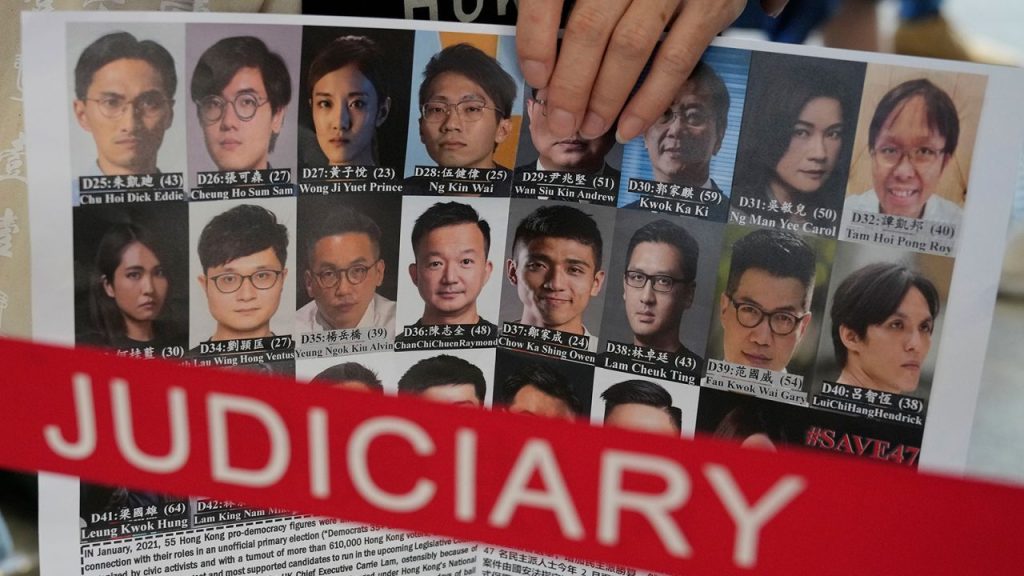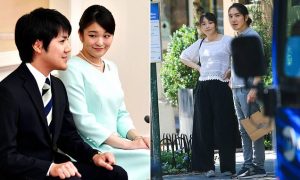
More than 40 of Hong Kong’s most prominent pro-democracy figures were sentenced to prison on Tuesday, with terms ranging from 50 months to 10 years on subversion charges. The sentences mark a major escalation in the suppression of dissent in the city following Beijing’s national security law, imposed four years ago.
Among those sentenced was Joshua Wong, a former student leader and symbol of Hong Kong’s pro-democracy movement, who was given a prison term of 4 years and 8 months. As he was led from the court, Wong shouted, “I love Hong Kong.”
Benny Tai, a legal scholar labeled the “mastermind” of the movement, received the longest sentence of 10 years, the harshest yet under the national security law. Other notable figures sentenced include Gwyneth Ho, a former journalist, who was sentenced to 7 years, and former lawmaker Leung Kwok-hung, known as “Long Hair,” who received 6 years and 9 months.
This mass sentencing is part of a landmark prosecution involving 47 defendants, collectively known as the “Hong Kong 47.” They were charged with conspiracy to commit subversion for organizing an unofficial primary election in 2020, aimed at improving their chances in citywide polls. Hong Kong authorities argued that the primary election was an effort to subvert the government, while the defense maintained that it was a peaceful political maneuver.
In total, the judges handed down more than 240 years of prison sentences, marking a decisive blow to Hong Kong’s once-vibrant democracy movement. A significant number of those sentenced had been in detention for over three years. Some, facing lesser sentences, may soon be released. However, Hong Kong’s Security Minister, Chris Tang, suggested that the authorities might seek even longer sentences for certain defendants.
The case has drawn strong international condemnation. The U.S. government expressed “strong condemnation” of the sentences, calling for the immediate release of all political prisoners in Hong Kong. “We call on authorities in Hong Kong and Beijing to cease politically motivated prosecutions,” a U.S. consulate spokesperson said. Australia’s Foreign Minister, Penny Wong, also expressed concern, especially for Australian citizen Gordon Ng, one of the convicted.
In response, China’s Foreign Ministry accused Western countries of “interfering” in China’s internal affairs and undermining the rule of law in Hong Kong.
This trial highlights the significant erosion of Hong Kong’s political freedoms in recent years. The city, which once boasted a high degree of autonomy and robust opposition, has increasingly mirrored the authoritarian mainland. Many pro-democracy activists are now either in prison or living in exile, and several independent media outlets have shut down. Meanwhile, Hong Kong’s political system has been overhauled to ensure that only staunch pro-Beijing candidates can stand for office.
John Burns, an emeritus professor at the University of Hong Kong, noted that the city’s autonomy has diminished, as have citizens’ rights to freely participate in politics. “The new regime has restricted human rights in Hong Kong, rights that Hong Kongers used to enjoy,” he said.







